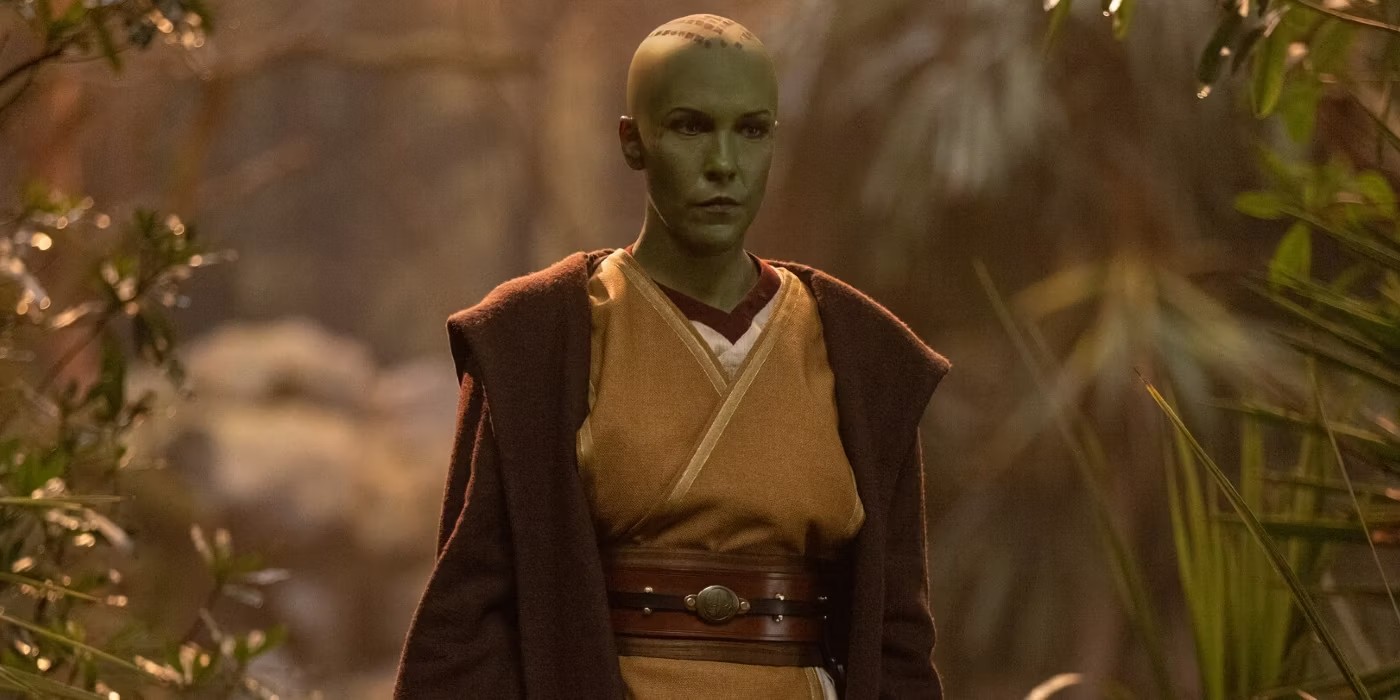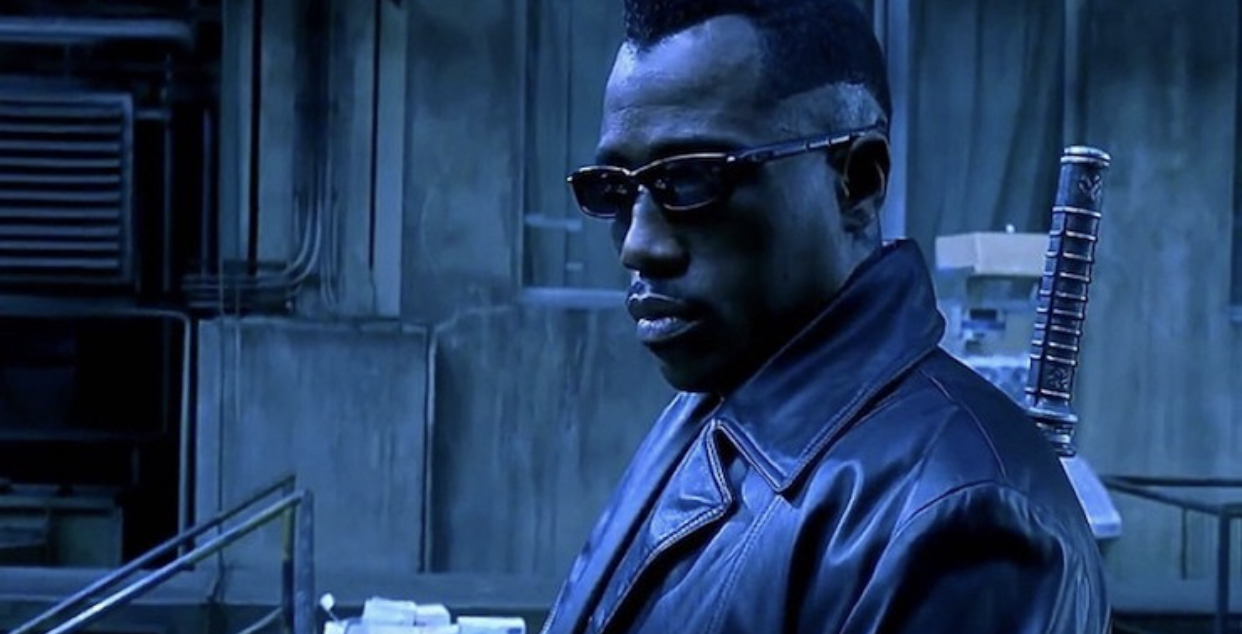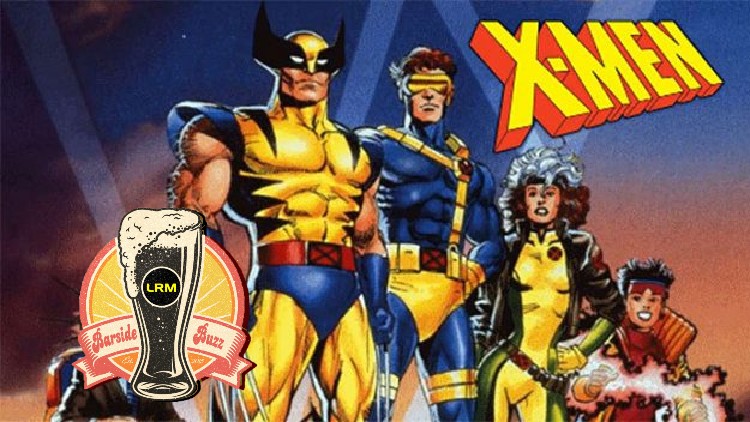![]() “Out of the Furnace†is not just a typical revenge thriller.
“Out of the Furnace†is not just a typical revenge thriller.
The film explores certain American themes such as violence, posttraumatic stress disorder from war, illegal bareknuckle fighting, the Great Recession and small town environments.
Director Scott Cooper assembled a terrific cast that included Christian Bale, Casey Affleck, Woody Harrelson, Forest Whitaker, Sam Shepard and Zoe Saldana.
The movie is about an older brother who takes justice in his own hands after his younger brother mysteriously disappears in the mountains for a bare knuckle fight.
Latino-Review had an exclusive phone interview with Cooper on this drama. We discussed the cast, Braddock and the humanity in America. Please note we discuss some spoilers in the movie.
“Out of the Furnace†is currently out in theaters.
Read the full transcript below.
Latino-Review: What was the inspiration behind your story?
Scott Cooper: Well, there was a screenplay offered to me by Relativity [Media], Leonardo DiCaprio, and Ridley Scott. It was very well written, but it’s not something that I wanted to film. I didn’t want to explore this kind of scenes. They just came back and said, “Would you consider writing carte blanche about a man who gets out of prison and in a vengeance for the loss of his brother?†I don’t particularly love genre films. Sure, I can do that. But, I can only do that if I could personalize it.
So growing up in the coal fields of Virginia and a grandson of a coal miner, I was able to tell a story about people who I knew and grew up with. And having lost a sibling at a young age, I knew on what kind of loss that was. [I knew] the people who served [in the military], coming back and having a difficult time assimilating back to life.
Unfortunately, Woody’s character was based on someone who touched my immediate family in a tragic way. So I thought I could personalize the film and emerge that with “Out of the Furnace.â€
Latino-Review: I’ve seen the movie and it’s quite amazing.
Scott Cooper: Thank you for saying that, man. It means a lot to me.
Latino-Review: Hey, you’re welcome. Let’s talk about this setting as Braddock. I’m pronouncing it correctly? Braddock, Pennsylvania?
Scott Cooper: Yeah, some people pronounce it as Brad-dick. Or some people pronounce it as Brad-dock. It’s funny. People are very territorial that way. For this interview, we’ll just call it Brad-dick.
Latino-Review: Sure. It seems like Braddock itself is another character for the movie. Could you talk about that and the community?
Scott Cooper: Yeah, it’s a critical character in the film. It reminded me of some of the small towns I’ve grew up with and visited in Virginia. As I was touring with my first film, “Crazy Heart,†I’ve been reading a lot about Braddock. It was kind of an endemic of America in a dying small town and a vanishing way of life losing industry. People are deserting the city. But, the people who remained seem to be filled with great human spirit, resilience and courage.
I was drawn to it and I drove over on my day off. Ultimately, the town was extremely poetic, cinematic and photogenic. I thought it reminded me of the many places I’ve grown up in and as a great setting for a film. I started writing specifically for the town and with very specific set pieces in the town. I knew it would be a character that would be every bit important as Christian’s character, Casey’s or Woody’s.
Latino-Review: All the locations you’ve did here at Braddock, you didn’t do anything on the stage at all? You chose an empty factory or bar?
Scott Cooper: Correct. Everything you’ve seen the film is written specifically for that location. I don’t particularly like to shoot nor that have I ever shot on a stage. I like to give the audience an extreme sense of reality and authenticity that you can’t getback lot of a studio. So everything was written in the practical location. I wanted to make that work, because it really was representative of what the town truly is. I wanted to represent it honestly and truthfully as possible.
Latino-Review: Was the community itself helpful to you and your film crew?
Scott Cooper: Oh, yeah. They embraced us with open arms. They couldn’t have been more helpful. It would’ve been cheaper for us if we shot in Massachusetts. The mayor, John Fetterman of Braddock, reached out to the past governors, sitting governor, town councilmembers and the film office. They really made it work for us. The movie would’ve been a lot different if we had not shot it in Braddock.
Latino-Review: Yeah, absolutely.
Scott Cooper: They embraced us in every way. I tried to use as many local actors as possible. Many of the local citizens are background actors.
Latino-Review: Of course, you’ve brought a very, very strong cast together. I mean it’s an amazing cast and how you pulled this off. Were you even wowed by your own casting arrangements?
Scott Cooper: It’s always difficult to assemble great actors. Great actors too often don’t have the opportunity to really play well-rounded characters or characters that are struggling or characters that really represent who Americans are. Too often, they are superheroes or stock characters who are familiar. I like to tell stories about the people who are dispossessed; who live on the margins; about society; and who are forgotten. These actors relish playing those.
I think any chance for actors to be in with other great actors and in a movie that has something to say—they run at the chance. So I was very grateful.
Latino-Review: Did you have any special approach with these folks since they’re all veteran actors and award-winning actors?
Scott Cooper: Yeah, you have to direct them all differently and individually. [I must direct them] very carefully because many of them [like] Forest [Whitaker] and Sam [Shepard] have directed films of their own. They’re all veteran actors. You have to make them feel safe. You have to make them feel like they can take risks and to make them feel like they’re valued. Their characters are the most important things in the film…..and not pyrotechnics.
You really have to direct each actor differently. I have two children and I have to engage them on different levels. They have different processes and their approach to the materials.
I adore actors, because I am an actor. I speak their language. I have such great reverence for them. It makes it easier to have discussions with them.
Latino-Review: Let me talk about one of the strongest characters, in which I find that it is Woody Harrelson’s character. He basically oozes himself as a villain. I would say he’s one of the top villains this year. Woody, himself, is a jokester. How do you keep him in control?
Scott Cooper: The reason why I cast Woody was because we know Woody as a very light-hearted, fun, kind and humorous man. I wanted to see a whole part of his personality we’ve never seen. He had to live in that head space for a couple of months. It’s never easy for an actor to live in that head space like that.
You have to direct him quietly with confidence and pointedly. [Make sure you] don’t give too much direction. You can’t over-direct anybody. You have to help guide them and understand….fully alive. Woody is an old pro. He needs a small amount of direction and he makes it as his own.
He had a difficult time not playing the part, but having to live in that part for two months. There were a couple of moments where I really wanted to humanize him. [There was] when he was about to murder Casey’s character and he said, “Don’t look at me. Look away.â€
Or like earlier when he said, “Why do you want to fight up here when you’ve been fighting everybody else for so long?â€
And at the end when Christian Bale’s character said, “I’m Rodney Baze’s brother.†Then there was a hint of recognition. He said, “He’s a tough kid.â€
So you try to humanize him since they’re all humans whether they’re villainous or not. Woody played it very terrifyingly and very realistically. I think it’s one of his greatest performances.
Latino-Review: Absolutely, I think so too. You also said that the character was based off a real person?
Scott Cooper: Yeah, but not for someone that lived up in the mountains. You try to draw from real people. Sometimes writing a script like this can be painful and cathartic. And it was. Yeah, but I don’t want to get into it too much. It’s someone who touched my family in a very tragic way.
Latino-Review: Casey Affleck’s character seems to be very unique. It’s two characters in one being a knuckle fighter and an Iraqi veteran. Did you have to do any special research for that?
Scott Cooper: Correct. A lot. I’ve dealt with a lot of veterans. [Casey] watched a lot of videos of bare knuckle fighters. He spent a lot of time understanding the issues they face when vets returned home and they no longer have the adrenaline rush being at war. They had to come home to a crumbling economy.
Film’s really about America over the past five turbulent years. [It’s about] fighting a war on two wars with a deteriorating economy. There are soldiers with PTSD and we live in a very violent nation. I try to wrap all of those themes into a narrative that would speak to the universal issues that the world has seen and Americans are facing.
Casey researched with vets who suffered with PTSD. He trained with an Olympic champion boxer. He really threw himself into the part both physically and emotionally. It was tough for Casey to play that. I think he was wonderful in the film.
Latino-Review: There were a lot of violence scenes. No one got hurt on the set, right?
Scott Cooper: No, no one got hurt. Every once in a while punches slip and they connect. That is to be expected in a film like this. All of the actors, including the day players, brought their absolute best to the set. In every take, it was a thrill—truly.
Latino-Review: Now could you talk about the ending and the beginning of the movie?
Scott Cooper: In the beginning, you typically start with your protagonist. So I subvert our expectations with starting the antagonist. And showing the world that an actor who is beloved and humorous in a way that they’ve never seen him. In “Natural Born Killers,†he was playing with a hint of irony. In this, he was playing it as realistic.
And it also sets the tone for the rest of the film. It shows that any time this man comes on screen, nothing good was going to come with it and it’s unpredictable.
Latino-Review: What about the ending of the film?
Scott Cooper: In the ending, after Christian Bale’s character murder Woody Harrelson’s character. Here’s a man in his home sitting at the dining room table we’ve seen several times before. [There is a] man who is battling his soul; living with the consequence of violence; and with a deep sense of loss.
This is a man who is sitting at a dining room table who takes his meals with his deceased feather, deceased mother and deceased brother. Although he isn’t in prison, he is in a prison of his own.
Because I’m a positive and optimistic guy, I really believe that is a man who will find peace and contentment. It’s also homage to “Godfather 2,†where Corleone sit in a chair in a home that his brother Fredo was just murdered outside his window. He is also living with those consequences of violence.
Latino-Review: You certainly started the movie with a bang and ended with a bang.
Scott Cooper: Oh good, man. Every time when you put out a personal film like this, it’ll be difficult because it will be roundly criticized. But, that’s why you take chances as an artist. Francis Coppola said, “If you aren’t trying to attain the highest artistic risk every time you make a film, then why are you doing it?†There would’ve been much safer ways to follow up from “Crazy Heart,†that’s for sure.
Latino-Review: I’ll go ahead and wrap this up with one more question. After releasing this film, are you going to do any more drives to inspire yourself to the next film?
Scott Cooper: I don’t know. It’s always tough on where things come from. I’ve written something that I’m really proud of and hopefully it would be next. You always want to take chances as an artist. You always want to explore the human condition, at least I do. I think I have a couple of pieces that I might do that with.
Latino-Review: So basically, it’ll be very similar to “Out of the Furnace†and “Crazy Heart†then?
Scott Cooper: Yeah, probably or at least similar in that kind. Steven Soderbergh said that after 9/11, most American audiences are suffering from their own PTSD of their own. They like their own movies a bit palatable and easily digestible. “Out of the Furnace†is not that. It’ll be interesting on how it is received. I like to tell a story of humans in ways that move us, provoke us or pierce us. And sometimes those aren’t easy to take.
Latino-Review: Awesome. Thank you very much for your time. I wish you luck for your movie.
Scott Cooper: I will need it! Thank you.
“Out of the Furnace†is currently in theaters.

 FOR FANBOYS, BY FANBOYS
Have you checked out LRM Online’s official podcasts and videos on The Genreverse Podcast Network? Available on YouTube and all your favorite podcast apps, This multimedia empire includes The Daily CoG, Breaking Geek Radio: The Podcast, GeekScholars Movie News, Anime-Versal Review Podcast, and our Star Wars dedicated podcast The Cantina. Check it out by listening on all your favorite podcast apps, or watching on YouTube!
Subscribe on: Apple Podcasts | Spotify | SoundCloud | Stitcher | Google Play
FOR FANBOYS, BY FANBOYS
Have you checked out LRM Online’s official podcasts and videos on The Genreverse Podcast Network? Available on YouTube and all your favorite podcast apps, This multimedia empire includes The Daily CoG, Breaking Geek Radio: The Podcast, GeekScholars Movie News, Anime-Versal Review Podcast, and our Star Wars dedicated podcast The Cantina. Check it out by listening on all your favorite podcast apps, or watching on YouTube!
Subscribe on: Apple Podcasts | Spotify | SoundCloud | Stitcher | Google Play



